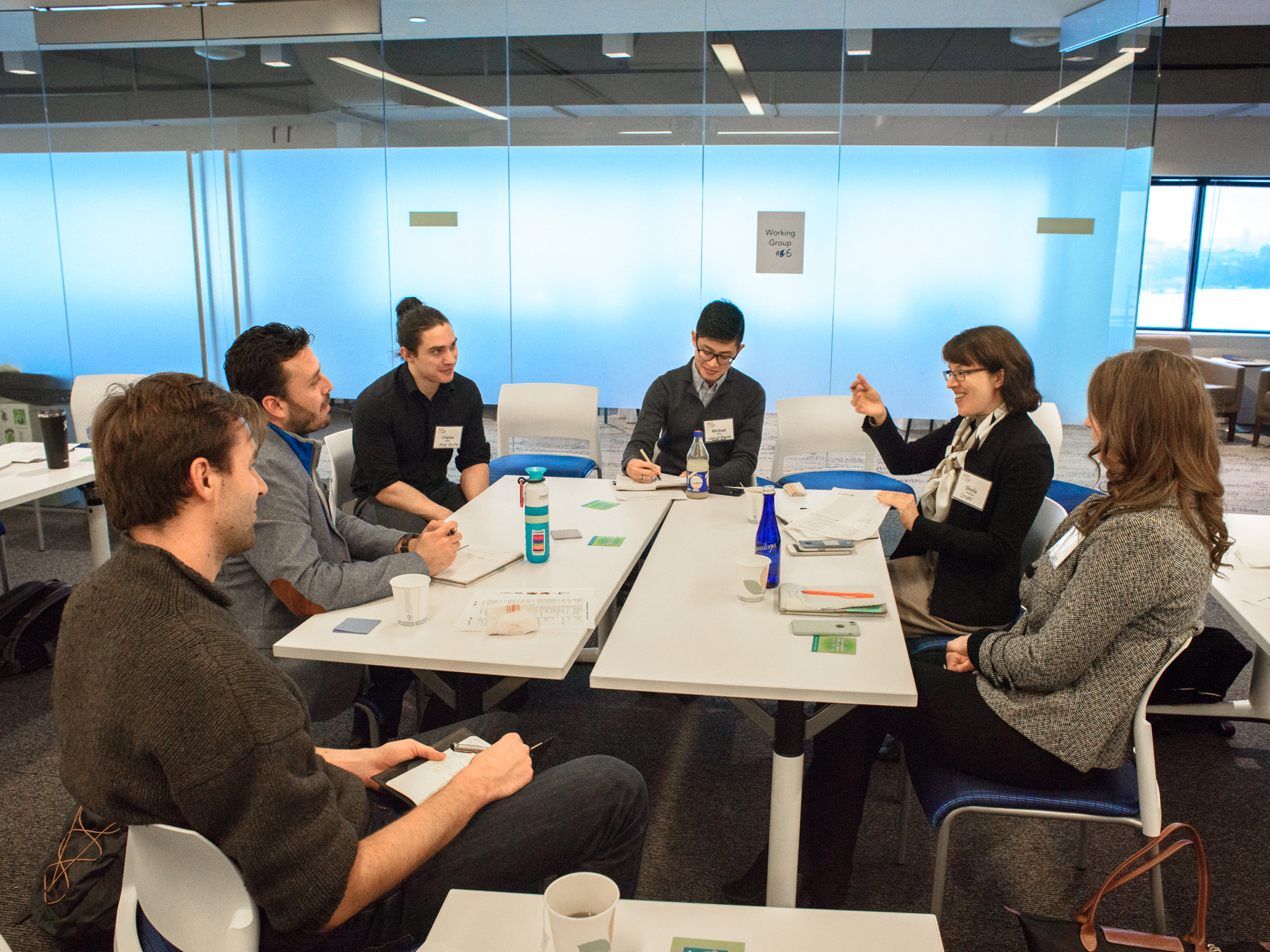Menu
ESI Journalism Fellowships
Supporting climate reporting in Americans’ backyards
Launched in spring 2021, the MIT Environmental Solutions Initiative’s Journalism Fellowship supports freelance or staff journalists associated with U.S. local/regional newsrooms in developing a high-impact news project that connects local perspectives, values and priorities with climate change science and solutions. The Fellowship is part of ESI’s program to engage Americans, states and communities as they face climate impacts, solutions and an emerging low-carbon economy.
Fellowships provide scientific, design and financial support to outstanding journalists in support of longform or serial local reporting that opens conversations about climate change solutions and impacts. Read our MIT ESI Journalism Fellowship Impact Report 2021 to learn about the accomplishments of the first year of this fellowship program.
Meet our 2024 Fellows
Alex Baumhardt
Salem, OR: Oregon Capital Chronicle
Alex Baumhardt is a reporter covering environment and education for the nonprofit news site Oregon Capital Chronicle. Before coming to Oregon, she was a national radio producer and reporter covering education for American Public Media’s documentaries and investigations unit, APM Reports. She earned a master’s degree in digital and visual media as a U.S. Fulbright scholar in Spain, and has reported from the Arctic to the Antarctic for national and international media and from Minnesota and Oregon for The Washington Post.
Project description: Baumhardt will report on opportunities and challenges in the nascent and largely unregulated carbon credit markets banking on Oregon forests and “working lands” to offset greenhouse gas emissions from major polluters.
Anastasia Hufham
Salt Lake City, UT: The Salt Lake Tribune
Anastasia Hufham is an environmental reporter for The Salt Lake Tribune originally from Birmingham, AL. She covers the Colorado River and the use of Utah’s public lands — like mining, grazing, recreation and energy development. Anastasia has also reported on local government, public lands and the Navajo Nation for the Moab Sun News in Moab, Utah, where she learned about the legacy of uranium production on the Colorado Plateau. She earned a B.A. in Ethics, Politics & Economics from Yale University, where she served as Editor-in-Chief of The Yale Politic, a student magazine.
Project description: Anastasia will investigate the resurgence of the uranium industry in Utah, looking at the potential impacts of developing a domestic nuclear energy supply chain, including possible environmental and health risks.
Brooke Larsen
Salt Lake City, UT: High Country News
Brooke Larsen is a journalist based in Salt Lake City, where she reports on water, the energy transition, and environmental justice for High Country News and other outlets. Over the past year, she covered rural communities, agriculture and conservation as HCN’s Virginia Spencer Davis Fellow. Brooke received her MA in Environmental Humanities from the University of Utah and a BA in environmental policy from Colorado College. She is the co-editor of the anthology New World Coming: Frontline Voices on Pandemics, Uprisings, and Climate Crisis and a co-producer of the podcast Stay Salty: Lakefacing Stories about the receding Great Salt Lake.
Project description: A four-part series in High Country News on the energy transition in Utah’s coal country.
Philip Jankowski
Dallas, TX: Dallas Morning News
Philip Jankowski is a political correspondent for the Dallas Morning News focusing on energy and the state Legislature. He has covered government, politics, and criminal justice in Texas for 16 years. He previously worked for the Austin American-Statesman, the Killeen Daily Herald, and the Taylor Press. Philip is a graduate of the University of Texas at Austin.
Project description: Phil will use the fellowship to pursue a series of explanatory stories examining how climate change affects North Texas’ economy and the state politics of renewable energy in the country’s largest fossil fuel producer.
Reid Frazier
Pittsburgh, PA: The Allegheny Front
Reid Frazier covers energy for The Allegheny Front, a weekly public radio environmental news show in Pennsylvania. He has covered the impacts of the natural gas, coal, petrochemical, and steel industries. He is a contributor to the NPR Climate Collaborative. His work has aired on NPR, Marketplace, and other outlets. He is based in Pittsburgh.
Project description: Reid is reporting on the implications for a ‘blue’ hydrogen hub in Pennsylvania, West Virginia, and Ohio.
Past Fellows
Learn about our past journalism fellows and their reporting projects.
Fellowship Advisors
Dr. Deborah Blum, Director, Knight Science Journalism Program, MIT
Prof. Jim Paradis, Robert M. Metcalfe Professor of Writing and Comparative Media Studies, MIT
Dr. Seth Mnookin, Director of the Graduate Program in Science Writing and a Professor in Comparative Media Studies/Writing at MIT
Climate Research Collaborators
Dr. Adam Schlosser, Senior Research Scientist and Deputy Director for Science Research, MIT Joint Program on the Science and Policy of Global Change
Joshua Hodge, Executive Director, MIT Center for Energy and Environmental Policy Research
Dr. Kerry Emanuel, Professor emeritus of Atmospheric Science at MIT
Contact
Laur Hesse Fisher, Program Director, MIT Environmental Solutions Initiative





















